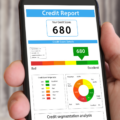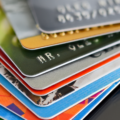Credit Card Debt: Avoiding Common Mistakes
February 13, 2024

Credit cards is a widely used form of payment across the world. However credit card debt also tops the list of stressors for individuals in America. Revolving credit card debt can have a negative impact on your finances if you are not taking the right steps in debt management. Consumer credit counseling is often a wise choice when it comes to dealing with paying off credit card debt. However, there are certain things you can do before you get to the point of no return, There are some common mistakes you can avoid to make sure you are using your credit cards responsibly. Unfortunately, it’s easy to fall into common pitfalls if you’re not careful.
Credit card debt is a financial burden that many people face at some point in their lives. While credit cards offer convenience and flexibility, they can also lead to overspending and high-interest debt if not managed carefully. Whether you’re currently struggling with credit card debt or simply want to stay vigilant in managing your finances, understanding these common credit card mistakes is crucial for achieving long-term financial stability.
Topics Covered: Credit Card Debt - Avoiding Common Mistakes How Can CreditU Help? Credit Card Debt Management & Consumer Credit Counseling Key Insights
Credit Card Debt – Avoiding Common Mistakes
Let’s dig in deep and find out the most common credit card debt mistakes you need to avoid.
Mistake #1 – Too Much Credit Card Debt to Handle?
Not knowing when to stop your credit card spends is the biggest mistake you can make when it comes to accumulating too much credit card debt. every credit card comes with a spending limit. However, this does not mean it is free cash or that you should spend every penny until you reach the limit. You have to maintain a healthy credit utilization ratio in order to keep your credit scores healthy.
A credit utilization ratio is an accurate representation of how someone uses credit and how disciplined they are. It compares the total amount you owe on all of your credit card accounts to your total available credit limit. Credit counselors recommend that a credit usage ratio of less than 35% is a healthy amount.
Let’s say that the total amount you owe on all your credit card accounts are:
$1,500 + $4,200 + $800 = $6,500And each of these credit cards has a credit limit of:
$15,000 + $10,000 + $10,000 = $35,000Your Credit Utilization ratio is the total amount owed and divide by your total available credit limit as a percentage:
($6,500 / $35,000 )x 100%= 18.5%
It is important that you have an idea of your credit utilization ratio because this has a direct impact on your credit scores. Therefore, you have to be aware of not making the mistake of not spending too much.
Mistake #2 – Not Paying Your Credit Card Bills in Full
Using credit cards as free money for purchases beyond your means can result in unaffordable bills, increased interest rates, excess fees and damage to your credit score. Even worse if you are not paying your bills on time and in full you are making a big mistake. You are likely in this situation because of two reasons. One, your budget is way off than what you planned it to be and needs to be seriously re-evaluated. Two, you are not using your credit cards responsibly and stacking up credit card debt that your budget cannot handle.
A fundamental rule of thumb when it comes to credit card use is that you pay them in full and on time. If you keep paying the minimum payment and continue to stack even more debt you are likely going to end up paying more money in interest and other fees. The interest rates on credit cards vary depending on the type of card you have but are known to have higher rates. Therefore, you must stick to how much your budget can handle to spend on paying off credit card debt and spend on what is absolutely necessary. Breaking this bad credit card habit can help you improve your overall finances.
Mistake #3 – Not Paying Your Credit Card Bills on Time
Paying your credit cards in full and paying them on time are both equally important. Credit card companies work on a cycle and each of your credit cards have a due date to make your payments. If you do not make your payments by the said due date you are likely to be charged with late fees from the credit card companies. This mistake can cost you extra money that you can put towards your other financial goals. These late payment records can also go in your credit history impacting your credit scores. Therefore, this is not something you take lightly. You can set up automatic payments to your credit cards by linking your accounts and set reminders to ensure that you don’t make this mistake.
Mistake #4 – Too Many Credit Cards in Your Portfolio.
Having the right amount of products in your credit portfolio is really a fine balancing act. Too much or too little can impact your credit health. Closing or cancelling cards can have a negative impact on your credit health as much as opening too many credit lines too soon. Every time you open a credit card the creditors will do a hard inquiry on your credit report. The more times you do this the more hard inquiries resulting in temporarily lowering your credit score. Keeping unused credit cards open is advisable. This maintains a longer credit history and increases available credit two factors that influence your credit score. Just always be sure to use your old cards periodically to keep them active, regardless of the transaction amount, and monitor them for potential fraud.
Mistake #5 – Not Paying Enough Attention on Credit Card Security
You may have heard many situations where retailers or organizations send out mass communications on data breachers. Credit card information is vulnerable to such data breachers as the information is quite widely available to be stolen. Therefore, taking necessary steps to safeguard your card is important. Always monitor your transactions and notify your creditors of any suspicious activity.
Mistake #6 – Not Reading the Fine Print
When you choose a credit card always make sure that you choose one that fits your needs. Credit card companied offer competitive benefits to attract customers. However, some of these benefits come with hefty annual fees and other conditions. If you are a frequent traveler, choosing a card that gives you more travel benefits may suit you well than the others. If you depend on your credit cards to make daily purchases such as groceries or gas, then you may want to look at a card with higher cash back benefits. Whichever card you choose, you have to make sure you read the fine print to make sure you are aware of all of the inclusions, exclusions, fees and other conditions. Information about your payment cycles, rewards benefits, late charges, and interest rates are all included in the fine print.
What Can CreditU Do For You?
Credit cards are a great way to build credit, but they can also lead to bad habits that damage your credit score. One way to break these habits is to download a personal finance app like CreditU. CreditU is designed to help you manage your finances and guide you towards better financial habits.
With CreditU, you can also track your spending and see where your money is going. This will help you identify areas where you can cut back and save money. Create and track financial goals with CreditU like paying off your credit card debt or saving money. Let CreditU help you stay focused and give you a clear path to the finish line!
Another helpful feature of CreditU is that it provides you with the ability to routinely monitor your credit score. This will help you understand the impact that your credit card habits are having on your credit score. By seeing your credit score and report, you can identify areas where you need to improve and make changes.
CreditU can be a great way to break bad credit card habits. With its helpful features and tools, you can take control of your finances, improve your credit score, and build better financial habits for the future. Don’t let bad credit card habits dictate your future, sign up for CreditU today and forge a new path to financial freedom!
Credit Card Debt Management & Consumer Credit Counseling
Paying Off Credit Card Debt
The first step to tackling credit card debt is to create a plan. Start by listing all your credit card balances, interest rates, and minimum payments. Then, determine how much extra you can afford to pay each month towards your debts. Consider using the snowball or avalanche method to prioritize which debts to pay off first. The snowball method involves paying off the smallest debt first, while the avalanche method focuses on tackling the debt with the highest interest rate.
Credit Card Debt Management
Effective credit card debt management involves more than just making payments. It requires discipline and a commitment to changing spending habits. One common mistake is continuing to use credit cards while trying to pay off existing debt. Instead, consider using cash or a debit card for purchases until your debt is under control.
Another valuable tool in credit card debt management is budgeting. Creating a budget allows you to track your income and expenses, identify areas where you can cut back, and allocate more money towards debt repayment. Money management apps like CreditU can help you create and stick to a budget.
Seeking Help: Consumer Credit Counseling
If you’re struggling to manage your credit card debt on your own, don’t hesitate to seek help. American Consumer Credit Counseling (ACCC) can offer their credit counseling services to you if you are struggling to pay off debt. With a personalized debt repayment plan, ACCC can negotiate with creditors on your behalf, and provide financial education and counseling.
Key Insights
- Credit cards is an essential financial tool, however must be used carefully.
- Credit card debt can be a significant source of stress and financial hardship if left unchecked.
- However, by avoiding common mistakes, creating a repayment plan, practicing good money management habits, and seeking help when needed, you can take control of your finances.
- Remember, it’s never too late to start taking steps towards financial freedom. Take charge of your finances today, and reap the rewards tomorrow.
Last Updated on February 13, 2024 by Dilini Dias Dahanayake






